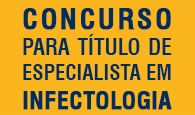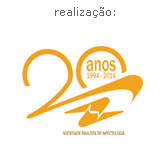

![]()
 ANDREAS F. WIDMER (Switzerland)
ANDREAS F. WIDMER (Switzerland)
Infectious Disease and Hospital Epidemiology, University of Basel, Basel, Switzerland.
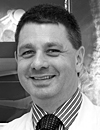 ANDREJ TRAMPUZ (Germany)
ANDREJ TRAMPUZ (Germany)
Andrej Trampuz is Professor for Infectious Diseases, Clinical Consultant and Head of the Infectious Diseases research laboratory at the Charité – University Medicine Berlin, Germany. He received his MD degree from the University of Ljubljana, Slovenia in 1994, internal medicine board in 1997 and infectious diseases board in 2001. He performed his postdoctoral research fellowship at the Mayo Clinic in Rochester, Minnesota, USA (2001-2004), established thereafter his research group at the University Hospital Basel, Switzerland and relocated to the University Hospital Lausanne, Switzerland in 2009. In 2013, he was appointed as Professor at the Charité – University Medicine Berlin, Germany. His new tasks are to establish an interdisciplinary septic unit for surgical infections, establish the European Implant Cohort Study (EICS) and continue with laboratory research involving biofilms and implant-associated infections.
The laboratory research involves the development and validation of novel methods for diagnosis and treatment of implant-associated infections, including animal models, emergence of antimicrobial resistance and development of new diagnostic methods. He is one of the founders of the European Implant Cohort Study (EICS), which will include infected joint prostheses from over 100 institutions across Europe (and other continents). In addition, he is principle investigator of several clinical trials involving implant-associated infections. He authored 96 peer-reviewed publications and 6 book chapters related to biofilms, implant infections, microcalorimetry, sonication and rapid microbiological diagnosis. His research group consists of 2 postdoctoral scientists, 1 lab technician, 5 PhD students and 4 master students.
Together with Dr. Olivier Borens, Head of Orthopedic Septic Surgery Unit, he established the Reference Centre for osteoarticular infections at the University Hospital Lausanne. Two years ago this hospital became the label "Collaborative Centre" recognized by the European Society for Clinical Microbiology and Infectious Diseases (ESCMID, www.escmid.org) with specific focus on bone and joint infections, especially implants. In the past 3 years (2011-2013), 85 international observers visited our institution for duration of 1-4 weeks.
In the past 3 years (2011-2013), 25 internal medicine assistants and 8 infectious diseases fellows rotated in this unit for 3-6 months and performed consultations for orthopedic & traumatology, thoracic & cardiovascular, visceral, plastic & reconstructive and neurosurgical unit.
 CESAR A. ARIAS (USA)
CESAR A. ARIAS (USA)Cesar A. Arias, MD, MSc, PhD is currently Associate Professor of Medicine and Microbiology and Molecular Genetics au UTHSC-Houston. Dr. Arias received his medical degree from Universidad El Bosque, Santa Fe de Bogota, Colombia in 1992, his MSc in Clinical Microbiology from the University of London, St. Bartholomew’s and The Royal London Hospital School of Medicine and Dentistry, United Kingdom in 1996 and his PhD in Molecular Biology and Microbiology Biochemistry from The University of Cambridge, Cambridge, United Kingdom in 2000. He completed his internal medicine residency and infectious diseases fellowship at the University of Texas Medical School at Houston and MD Anderson Cancer Center in 2008 in the Clinical Investigator Pathway. His research interests include the clinical and molecular aspects of antimicrobial resistance with emphasis on Gram-positive bacteria. Dr. Arias is also the Director of the Molecular Genetics and Antimicrobial Resistance Unit, Universidad El Bosque, located in Colombia, South America.
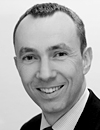 CHRISTOPH SARRAZIN (Germany)
CHRISTOPH SARRAZIN (Germany)Christoph Sarrazin is Professor of Medicine at J.W. Goethe-University Hospital Frankfurt, Germany. He trained at the Medical Schools in Bonn and Würzburg and graduated in Medicine at in 1994. He served as a postdoctoral fellow with specialisation in Internal Medicine, Gastroenterology and Hepatology at J.W. Goethe-University Hospital from 1994 to 2002 including a Research Scholarships at the Scientific Research Institute "Georg-Speyer-Haus", Frankfurt. In July 2002, Christoph Sarrazin moved as Assistant Professor of Medicine to Saarland University Hospital, Homburg, Germany and in 2007 he became an Associate Professor. Also in 2007 he moved back to J.W. Goethe-University Hospital in Frankfurt as Associate Director of the Department of Internal Medicine 1. Dr. Sarrazin took over his current position as Full Professor of Medicine at J.W. Goethe-University Hospital in Frankfurt in 2009. Christoph Sarrazin has been founded by the Deutsche Forschungsgemeinschaft, the Federal Ministry of Education and Research, the European Union and the Network of Competence on Viral Hepatitis (Hep-Net). For more than 15 years, Christoph Sarrazin has worked on basic and clinical aspects of hepatitis virus infections. He participated in numerous national and international phase I-III studies in chronic viral hepatitis. Dr. Sarrazin has more than 200 publications on basic research and clinical aspects of chronic liver diseases as well as evaluation of HCV and HBV molecular assays. His main interests in basis research are viral determinants of resistance to treatment of viral hepatitis with interferon, ribavirin and direct antiviral drugs.
PUESTO ACTUAL
Nov. 2006 A La Fecha: Director Medico. Clinica Reñaca, Vña del Mar
2005-2007: Past Presidente Sociedad Chilena de Infectologia
2002 A La Fecha: Medico Coordinador de Comité de Ntimicrobianos Sociedad Chilena de Infectologia
2013: Presidente de Api Asociación Pan America de Infectologia
PUESTOS ANTERIORES
1986-1988: Subdirector Medico Hospital Carlos Van Buren, Valparaiso
1988-1990: Jefe Unidad de Cuidados Intentivo Adulto Hospital Carlos Van Buren, Valparaiso
1990-1994: Infectologo Y Farmacologo Clinico Hospital Carlos Van Buren, Valparaiso
1992-1994: Director Medico Laboratorio Hoechst
1994-2006: Jefe Unidad de Infectologia. Hospital Dr. Gustavo Fricke. Viña del Mar
1995-2006: Jefe Unidad de Cuidados Intensivo Adulto Hospital de Instituto de Seguridad del Trabajo Viña Del Mar
2004-2006: Subdirector Medico Subrogante Hospital Dr. Gustavo Fricke, Viña Del Mar
2005-2006: Director Subrogante Hospital Dr. Gustavo Fricke, Viña Del Mar
ESTUDIOS UNIVERSITARIOS
1973-1979: Medicina - Universidad de Chile - Sede Valparaiso. Titulo Medico-Cirujano
Jun. 1980: Fecha De Titulo
1980-1983: Farmacologica Clinica - Medicina Interna Universidad de Valparaiso
1980-1983: Beca de Medicina Interna. Beca de Farmacologia Clinica Y Medicina Interna Universidad de Valparaiso
1985-1986: Beca de Perfeccionamiento de Farmacologia. Clinica en Instituto "Mario Negri" Milan, Italia
Año 1988: Beca Ops/Oms De Infectologia Y Control de Infecciones Intrahospitalarias University Of Iowa, Iowa City, Usa Columbia University, New York, USA
ACTIVIDADES ACADEMICAS
 PETER HUNT (USA)
PETER HUNT (USA)
Peter Hunt is an Associate Professor of Medicine in the HIV/AIDS division at the University of California San Francisco and Vice Chair of the AIDS Clinical Trials Group’s Inflammation and End Organ Disease Transformative Science Group. His primary research focus is on the inflammatory consequences of HIV infection. His clinic-based translational research program seeks to understand both the causes and consequences of persistent immune activation both in the presence and the absence of antiretroviral therapy. He collaborates extensively with a multi-disciplinary team of investigators to assess the impact of persistent immune activation on mortality and chronic diseases associated with aging (i.e., cardiovascular disease) as well as on the persistence of HIV in cellular reservoirs. He also conducts pilot clinical trials of novel immune-based interventions designed to decrease immune activation. Dr. Hunt also leads a translational research program in Mbarara, Uganda, focused on the determinants of immune recovery during suppressive antiretroviral therapy in that setting and has helped develop a large mucosal immunology program at San Francisco General Hospital focused on the impact of HIV on gut-associated lymphoid tissue and the determinants of microbial translocation in HIV infection.
 SAMUEL MOSKOWITZ (USA)
SAMUEL MOSKOWITZ (USA)
Dr. Sam Moskowitz is Assistant Professor of Pediatrics, Harvard Medical School, and Associate Pediatrician, Massachusetts General Hospital (MGH), where he conducts basic and clinical research on cystic fibrosis (CF). He is Associate Chief of the MGH Pediatric Pulmonary Unit, and also directs the MGH CF Therapeutic Development Center, Pediatric CF Clinical Program, and CF Basic Science Program. His research interests focus on antibiotic resistance and virulence mechanisms of Pseudomonas aeruginosa, a Gram-negative opportunistic pathogen that is the major cause of CF lung infection. Dr. Moskowitz received his bachelors degree in biology from Princeton University and his medical degree from Harvard Medical School. Dr. Moskowitz completed pediatric residency and fellowship training in pediatric pulmonary medicine at Seattle Children’s Hospital. He then joined the faculty of the University of Washington School of Medicine and served as attending physician in pulmonary m edicine at Seattle Children’s Hospital, prior to returning to Boston in 2009. He is board certified in pediatric pulmonary medicine by the American Board of Pediatrics. Outside of medicine and research, he enjoys running, cycling, ultimate Frisbee, Nordic skiing, coaching soccer, and spending time with his family.
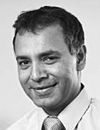 SHABIR A. MADHI (South Africa)
SHABIR A. MADHI (South Africa)
Shabir A. Madhi, MD, PhD, is Executive Director of the National Institute for Communicable Diseases Professor of Vaccinology at the University of the Witwatersrand in Johannesburg, South Africa, where he is also Co-Director of the Respiratory and Meningeal Pathogens Research Unit and Research Chair in Vaccine Preventable Diseases of the Department of Science and Technology/National Research Foundation. Dr. Madhi completed his undergraduate and postgraduate training at the University of the Witwatersrand and qualified as a pediatrician in 1996 and is registered as a Pediatric Infectious Diseases specialist.
Dr. Madhi has been involved in research on vaccine-preventable diseases and on infections in HIV-infected children for 16 years, performing some of the pivotal studies that have led to policies and guidelines in South Africa and those issued by agencies such as the World Health Organization (WHO). His research demonstrating a reduction in childhood morbidity with the use of pneumococcal conjugate vaccines (PCVs) and rotavirus vaccines prompted South Africa to be the first in Africa to introduce these vaccines in national immunization programs.
Prof Madhi has developed an international reputation in the field of vaccination against pathogens causing pneumonia as well as the effectiveness of vaccines in HIV positive children. Prof Madhi has contributed nine book chapters and over 170 peer reviewed articles in various high-ranking journals.
Dr. Madhi is a founding member of the Southern African Society of Paediatric Infectious Diseases and currently President (2010-2013) of the World Society for Paediatric Infectious Diseases.
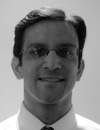 SHIRISH HUPRIKAR (USA)
SHIRISH HUPRIKAR (USA)
Dr. Huprikar graduated from Northwestern University Medical School in 1996; completed residency in internal medicine and fellowship in infectious diseases at The Mount Sinai Hospital in 2001 and then joined the faculty at the Icahn School of Medicine at Mount Sinai where he is currently an Associate Professor in the Department of Medicine and Director of the Transplant Infectious Diseases Program. Dr. Huprikar provides oversight for all clinical, educational, and research missions of the program that provides comprehensive consultative services for the solid organ and stem cell transplant programs at Mount Sinai. His academic interests include resistant bacteria in transplant candidates and recipients; donor-derived infections; transplantation in HIV patients; and the prevention and treatment of CMV and fungal infections. Recently he was appointed Co-Chair of the Transplant Clinical Quality Committee.

